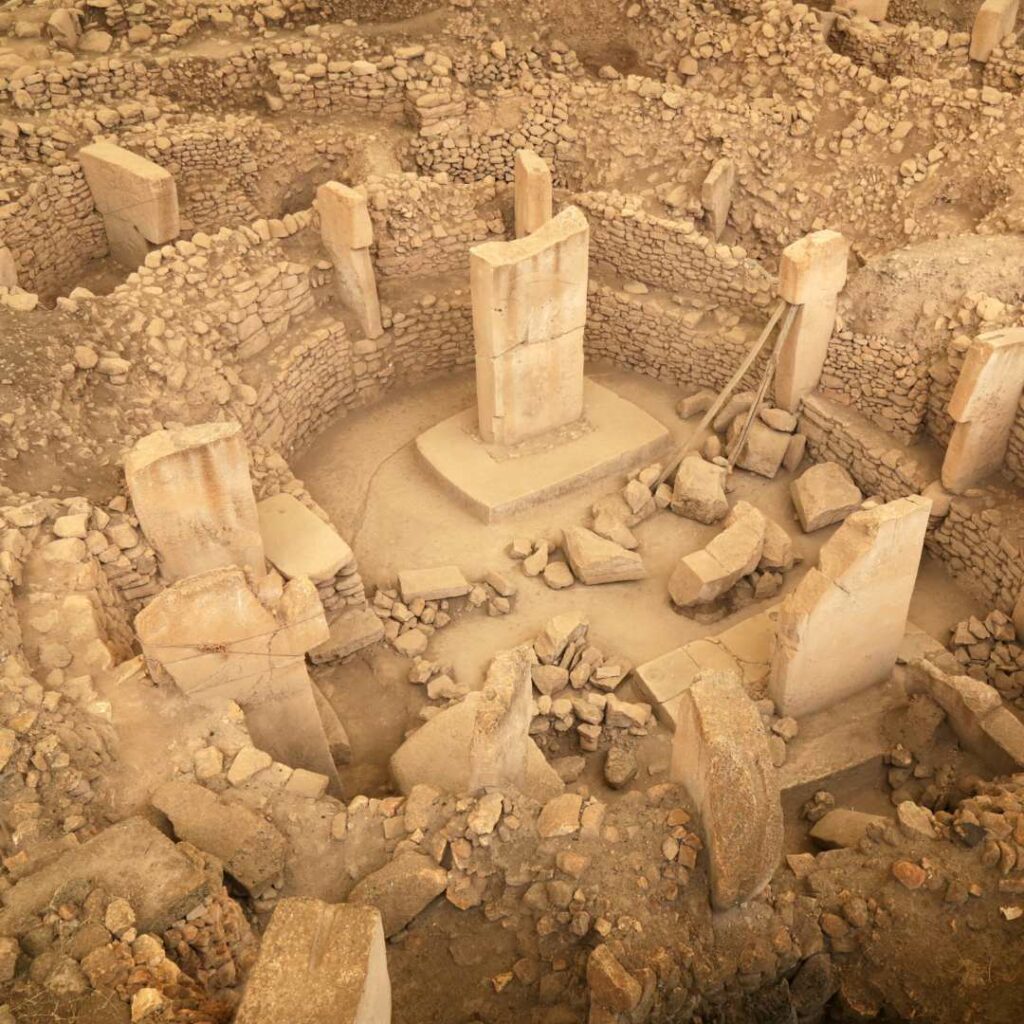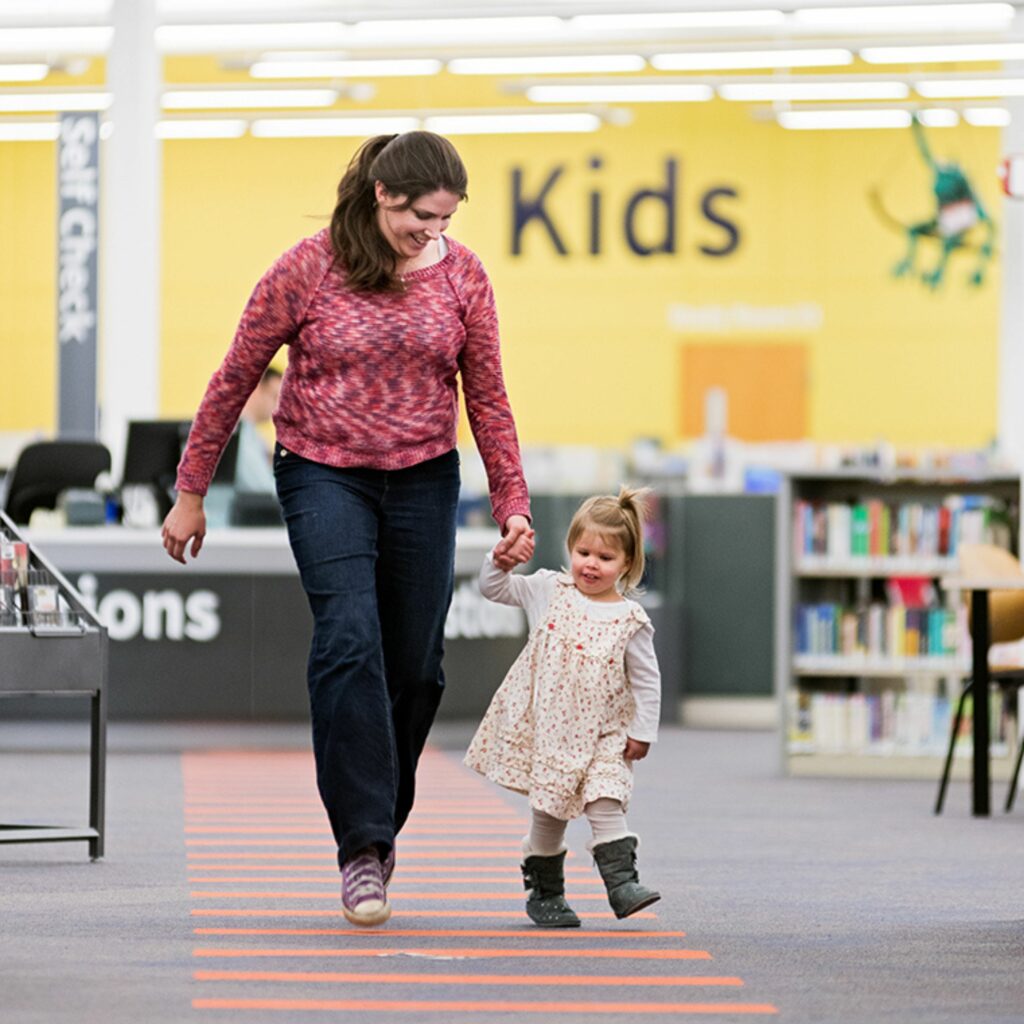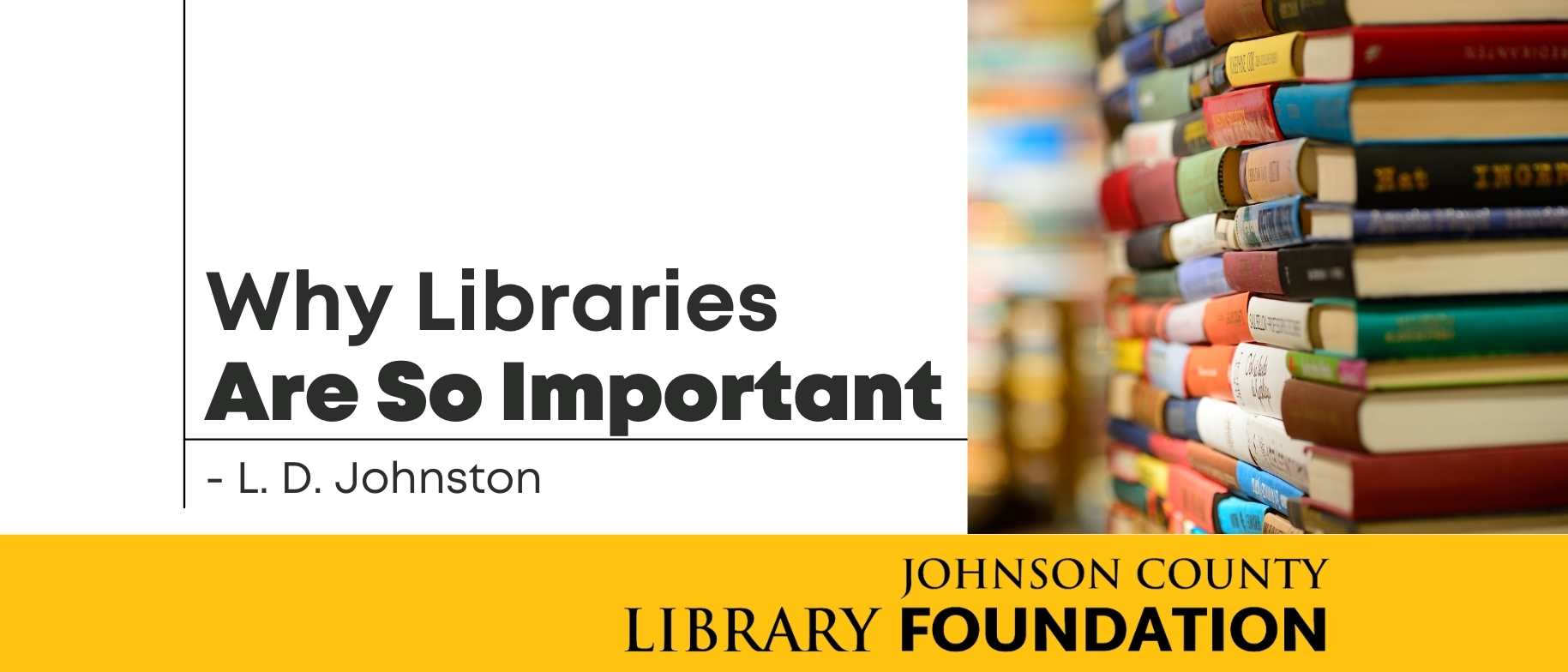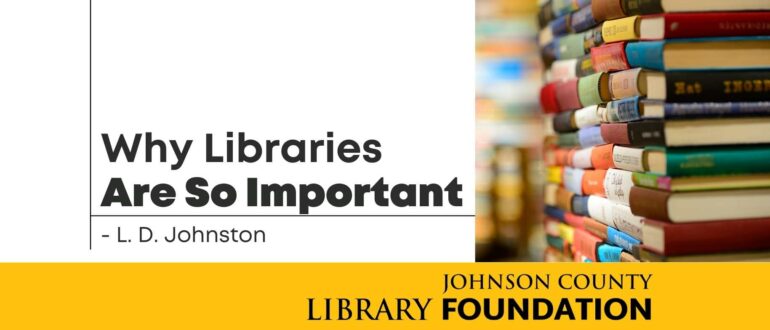written by L.D. Johnston
Humankind has long understood the importance of securing, storing, maintaining and making available the viewpoints, understandings, stories, art and actions of those who are able to record their observations. Each snippet of written words, each image, reveals a piece of the story of Humankind.

At Gobekli Tepe, tall standing stones carved some 13,000 years ago by a population we know little about, presented a means of expressing what was meaningful to the people of that time and place. Long buried in the sands of present-day Turkey and only recently discovered, they are the earliest examples found, so far, of people using in symbols to convey what they valued most. It was perhaps an effort to pass down to future generations the collective ideas of a culture: the first library?
It is only through the passed-down, written word and images that we can comprehend the history of our species: the bigger picture of past mistakes and past accomplishments; how far we have progressed, what we have fought for, and what we are capable of, good and bad.
Large cities and small towns began to build libraries for anyone and everyone to have access to whatever interested them. The libraries helped build and improve their communities. The literacy of the citizens became enriched. People began to think about how their community could be better; how the economy could be improved; how the community could be guided into the future and not fall behind and eventually die out.
With the advancement of technology, libraries raced to keep up. They have always depended on the generosity of donations to maintain the public libraries, and the more that the community supports them, the more services they can offer, and thus the community members benefit from their own generosity. Even if the donors don’t use the library often, they benefit by living in a community of well-read, well-informed citizens.
I recently went over to one of our Johnson County Libraries soon after it opened. I felt as if I had walked into a town square: mothers sitting around tables, catching up on news with each other, while their babies slept in strollers beside them; their toddlers busy at other tables working on art projects with paper, scissors and crayons and chatting with each other; children on the floor between book racks, sharing with each other what they’d found in a book they just pulled off the shelf; an older student off by himself, reading a book and taking notes; two men in one of the small meeting rooms, computer between them, discussing something. It was such a wonderful feeling to see the community there, all using the library for different purposes.

When I walk into a library, I am always a bit awed by what it holds: the thoughts, dreams, imaginings, stories, wisdoms, solutions, ideas, experiences, viewpoints, lessons learned, questions asked, wonderings and feelings — of hundreds of thousands of minds throughout history. There is no end to the wonder that lies between those bindings, on those shelves. There’s something there for everyone.
As a genealogist, I can attest that there are many versions of each story passed down through history, and a library allows us to search out all the various versions and decide for ourselves where the truth fits within our own point of view. It is important to review things from as many angles as possible before we decide what feels right. The more sides of an issue we are allowed to explore, the broader our understanding will be of what is right for each of us. And that search across many sides makes it easier to find tolerance for those who chose another version.
If we want our communities to thrive and our citizens to take advantage of the broader education available beyond the limits of our schools, we must support our public libraries, each and every one of us. They are the conservators of all the ideas ever recorded. They hold the key to our history and the lens to our future. They hold our communities together.


